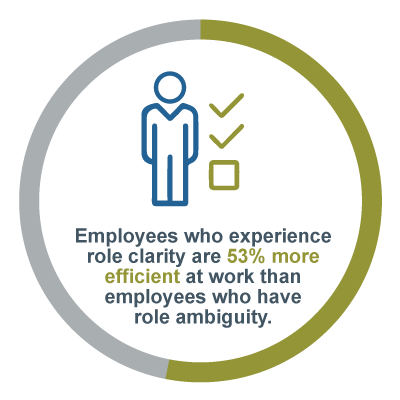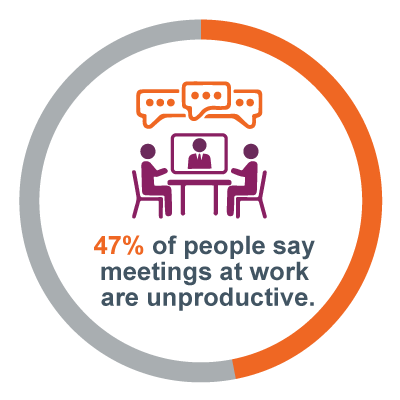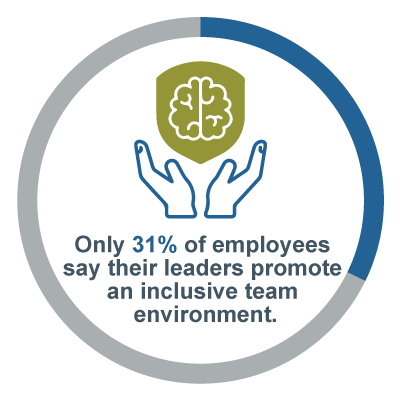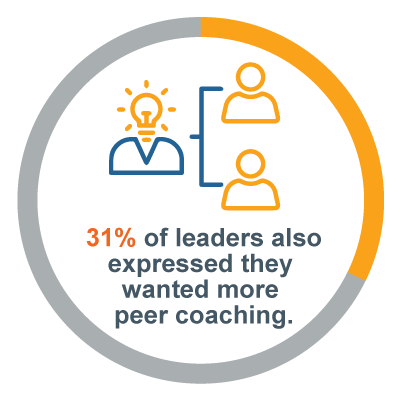Team effectiveness has always been a big part of any company and its success. But since 58% of leaders worldwide now work in a hybrid or remote role, most of them need new team management skills to effectively lead remote teams.
Everyone has emotional needs at work, but remote workers have some unique challenges. They may struggle with feelings of loneliness and isolation, difficulties communicating and collaborating, and distractions. Without solid team leadership, these challenges hurt team effectiveness, ranging from lack of productivity to burnout.
So how can we ensure that teams work effectively in remote and hybrid settings?
What is team effectiveness?
Team effectiveness is how well employees work together to achieve their goals.
Imagine being part of an effective team. Each member has a clearly defined role based on their unique skills and interests. Everyone listens to and supports each other, making collaboration seamless. You feel valued and appreciated, especially by the team leader, and you trust your coworkers to do their part. Together, you tackle challenges with confidence, celebrate successes, and make progress toward shared targets. It’s almost like being on a winning sports team where everyone plays their best game and cheers each other on. Working on an effective team is not only productive, but also enjoyable, because you feel like you’re a part of something special.
But just like winning sports teams need great coaches, effective teams in the workplace need skilled leaders. Here are six factors of team effectiveness that leaders need to keep your employees engaged and focused.

1. Reinforce a shared purpose.
Leaders are often laser-focused on strategy and keeping the business running. But leaders must also inspire their teams with a sense of purpose and vision.
Leaders must lay out the direction and provide updates for their work teams. They need a true north for their teams to rally and align around.
Leaders also need to show their teams how changes impact their individual goals and purpose. And most importantly? Leaders need to show their teams that they value their efforts.
Simply put, employees need to know why they’re doing something--and how and why it makes a difference. Everyone should know if their team goals are aligned with their company overall. Teams should understand why their team even exists and its business impact.
This sense of purpose isn’t just to make people feel good. It has huge employee engagement implications. Global Leadership Forecast 2023 found that purpose-driven leaders were 9X more likely to feel engaged in their role.
And when engagement runs high, retention flourishes. Global Leadership Forecast 2023 research also revealed that leaders who feel a strong sense of purpose are 2.4X more likely to intend to stay at their company for the next year.

2. Provide role clarity.
Organizations are constantly adapting. They need to evolve to stay competitive in a global marketplace and respond to disruptors, such as artificial intelligence (AI). They also need to consider expectations employees have around benefits like flexibility. Changes like these often mean that employees' roles and responsibilities change, too. But when responsibilities shift, that can sometimes cause confusion among teams. So, leaders need to communicate clearly about roles.
This is especially true in remote and hybrid working environments. Everyone needs to be clear on who does what so employees can remain focused on achieving goals and leaders don’t need to micromanage. Team leaders establish role clarity by setting individual goals and responsibilities, and making sure expected contributions are clear. More importantly, leaders should make sure each team member’s qualifications, capabilities, and motivations match their role. Also, team members should help leaders by knowing their own boundaries when making decisions and assigning work.

3. Promote enabling processes.
Hopefully teams know their objectives. But do they have the means to accomplish those objectives?
Leaders can’t let this area slip. An effective team shares progress and gathers feedback, and being intentional about this is even more important for hybrid and remote teams.
Teams need time to reflect on their successes and failures. They also need to ensure they have the time, staff, funding, and resources to do their job. Successful teams have clear team processes for planning, tracking, documenting, and managing work.
Teams also need to control how they spend their time. In one survey by Igloo Software, about 47% of people say meetings at work are unproductive. According to research from meeting effectiveness expert, Dr. Stephen Rogelberg, there are more than 55 million meetings in the United States alone, with the average employee spending five or six hours per week in meetings. One study found that senior managers spend nearly 23 hours per week in meetings.
Time management in the workplace can be difficult, no matter where you’re working from. With 71% of managers also calling meetings unproductive and inefficient, it’s easy to see how some work teams may get frustrated with meetings.
Leaders need to make sure their teams are not falling behind because of inefficiencies or wasted time. Leaders should check in regularly with their teams to get feedback on whether they have what they need.

4. Create a psychologically safe environment.
Team members want to feel comfortable, valued, and involved. Unfortunately, the vast majority don’t feel this way. Teams establish emotional security with a high level of trust, comfort, psychological safety, and understanding. They also need to respect one another, and intentionally invite everyone’s input and incorporate it into collective activities, like brainstorming sessions. Simple things like turning your camera on during virtual meetings can help to encourage participation and allow a team leader to look for non-verbal cues around engagement and inclusion.
Only 31% of employees say their leaders promote an inclusive team environment, meaning that most employees lack psychological safety in the workplace. Leaders who trust their senior leaders are nearly 3X more likely to develop novel ideas or solutions than those in low trust organizations. They are also less concerned with failing and try new ideas as an opportunity to learn.
Psychological safety is one of the most important factors in teams, especially during times of crisis and uncertainty. Leaders need to engage with their teams on an emotional level to keep them engaged and productive.

5. Encourage a collaborative spirit.
There’s a reason we work in teams—we need each other to accomplish our goals. A collaborative spirit encourages everyone to come together to think about the best ways to tackle work. It often brings new, diverse ideas and perspectives to the project team.
Even though team collaboration isn’t a guarantee, 61% of global leaders say that hyper-collaboration (or strong collaboration) is an area they'd like to develop over the next three years. And only 41% of those leaders say they are very effective in hyper-collaboration today. A lack of collaboration impacts everyone differently. But for remote workers who may already be at risk of feeling isolated, collaboration is essential.
That’s why leaders must encourage a collaborative spirit if they hope to achieve team effectiveness. They should share relevant information openly and clearly with their teams and encourage their teams to prioritize collective contributions over individual competition.

6. Foster growth orientation.
People need to learn and grow if they want to improve their performance. Effective teams provide more ideas and output to benefit the entire organization, sparking growth. These ideas come from experimenting or brainstorming new ways to solve problems.
One way to continue growing is for team members to learn from each other. Teams provide opportunities for everyone to grow and develop skills together. In fact, many leaders say they want to learn through interactive experiences with their peers, with a smaller amount of self-driven learning. 31% of leaders also expressed they wanted more peer coaching.
Leaders should encourage and provide these opportunities. This is one of the best ways to find innovative approaches to complete work while keeping your team engaged. And research tells us that opportunities for growth and development make a big difference in retaining high-potential employees.
Overcoming challenges together helps teams learn and grow. But it’s also important for leaders to know when to simply listen. Sometimes allowing the team to lead and coach their leader provides invaluable insights.
Teamwork Matters
Teams have both practical and personal needs, all of which impact team effectiveness.
The first three factors of team effectiveness address the practical side of teams. They need to understand their purpose, roles, and processes.
The last three factors of team effectiveness address their personal needs. They need to feel safe and valued, work well together, and be challenged to learn and grow.
What happens when you don’t meet these needs? Chances are, you won’t succeed. Both practical and personal needs balance each other out. Good leaders engage their team’s heads and hearts.
DDI can help you develop more effective leaders to take your teams to the next level. Learn about more ways to boost performance with our on-demand webinar, “Everyday Engagers: How Leaders Can Engage and Retain Teams.”
Verity Creedy is Vice President of DDI’s Product Management team and an award-winning blogger. Verity is obsessed with building powerful development experiences for leaders, trying to hold a decent plank for two minutes, and keeping indoor plants alive for more than six months.
Topics covered in this blog

